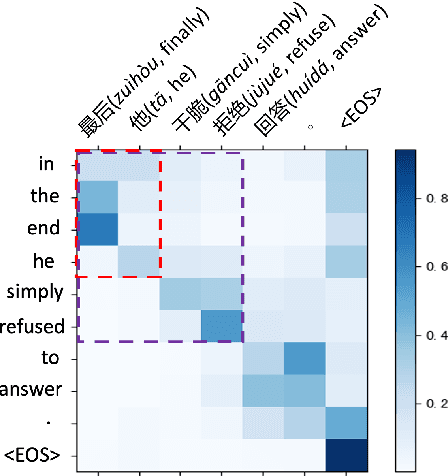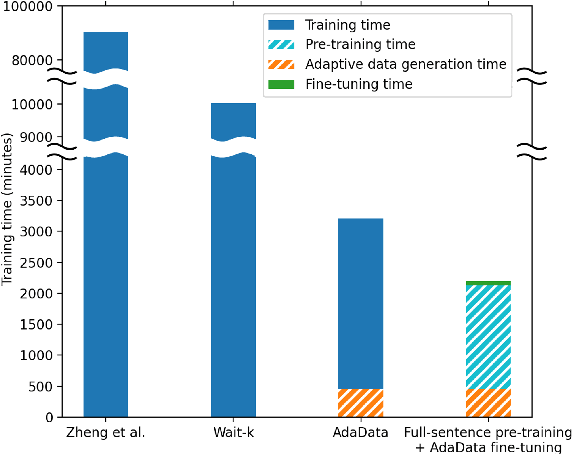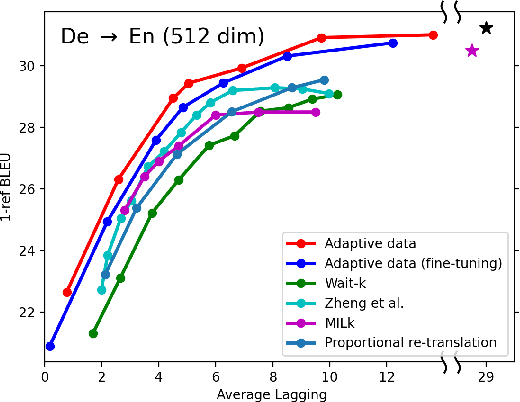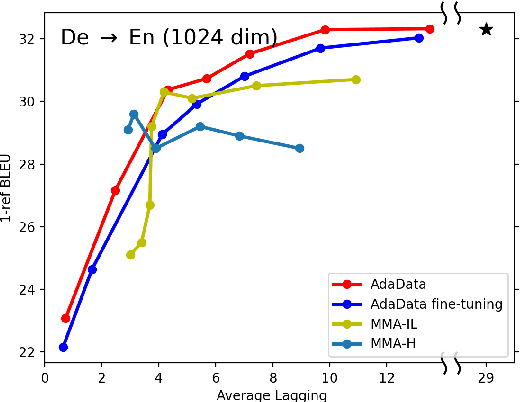Data-Driven Adaptive Simultaneous Machine Translation
Paper and Code
Apr 27, 2022



In simultaneous translation (SimulMT), the most widely used strategy is the wait-k policy thanks to its simplicity and effectiveness in balancing translation quality and latency. However, wait-k suffers from two major limitations: (a) it is a fixed policy that can not adaptively adjust latency given context, and (b) its training is much slower than full-sentence translation. To alleviate these issues, we propose a novel and efficient training scheme for adaptive SimulMT by augmenting the training corpus with adaptive prefix-to-prefix pairs, while the training complexity remains the same as that of training full-sentence translation models. Experiments on two language pairs show that our method outperforms all strong baselines in terms of translation quality and latency.
 Add to Chrome
Add to Chrome Add to Firefox
Add to Firefox Add to Edge
Add to Edge